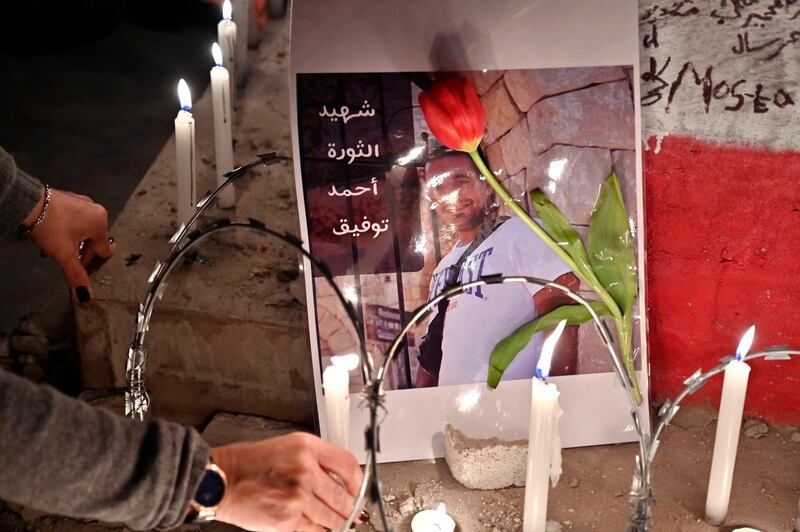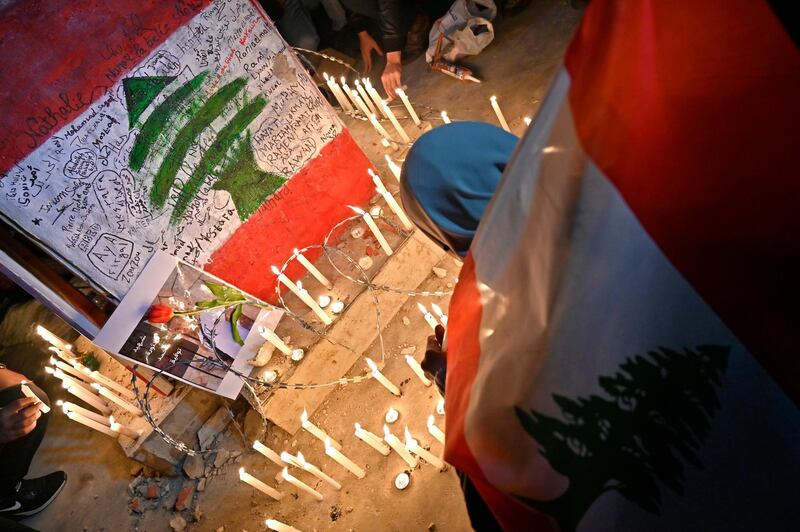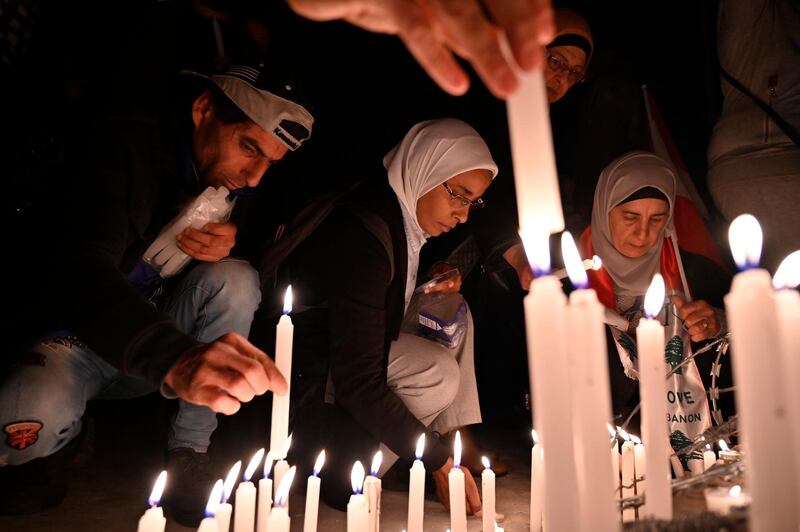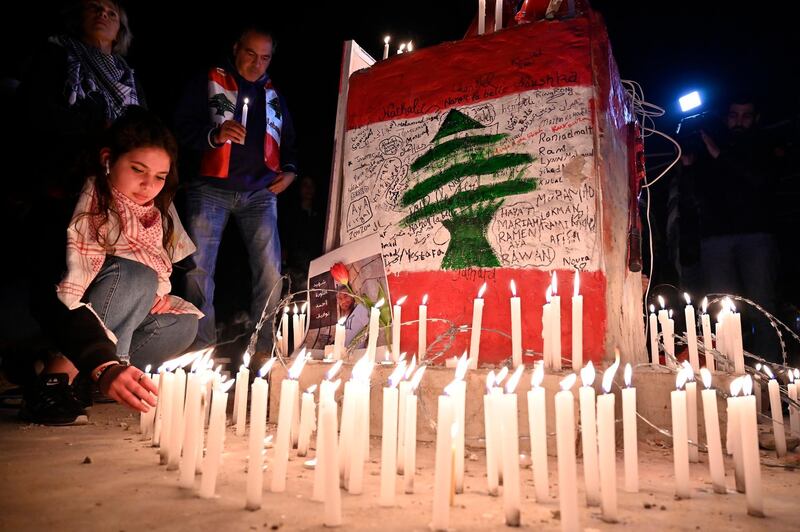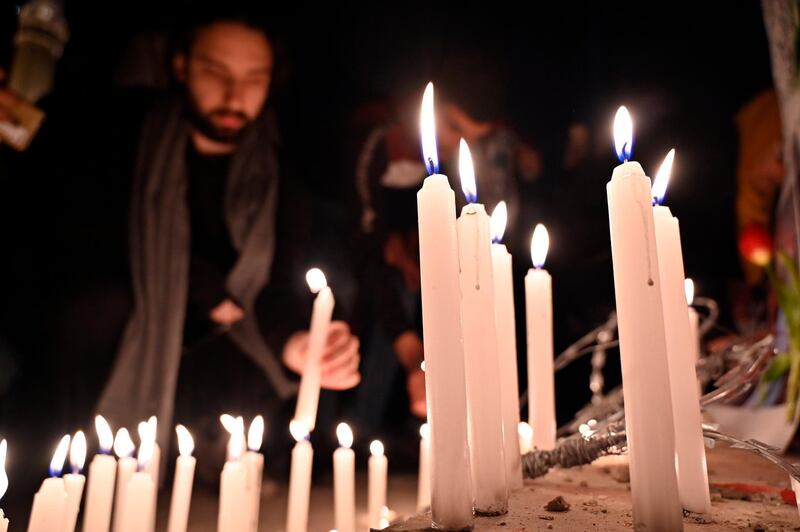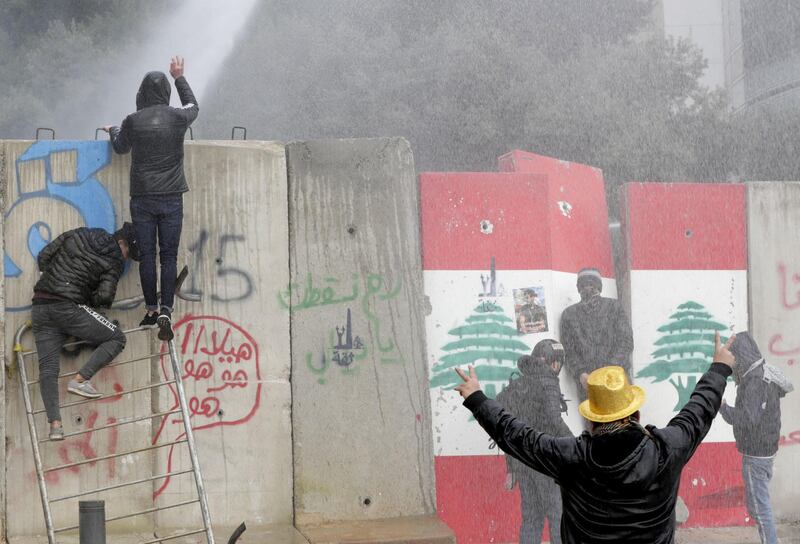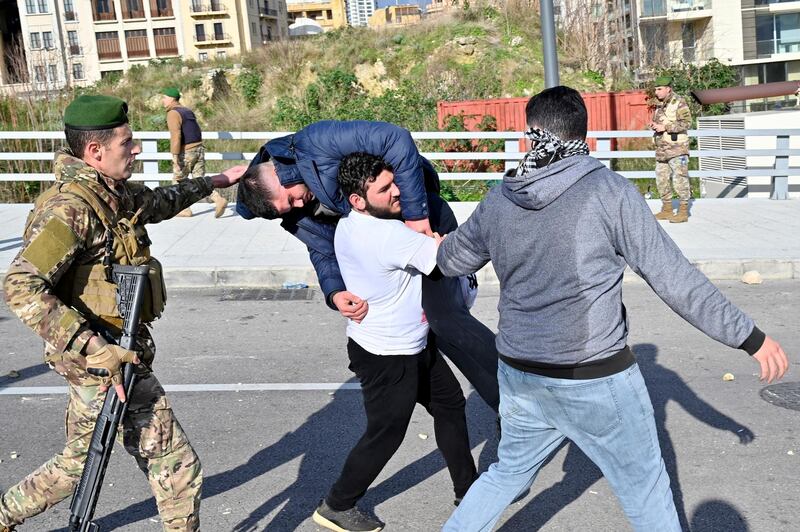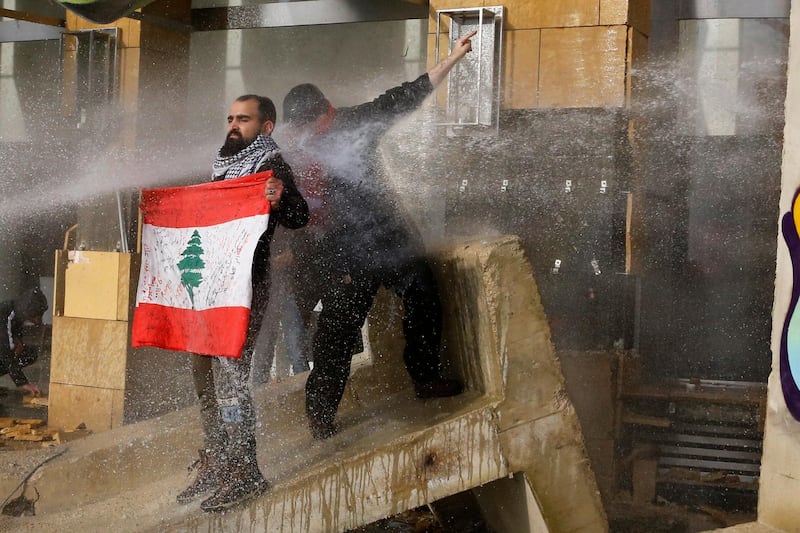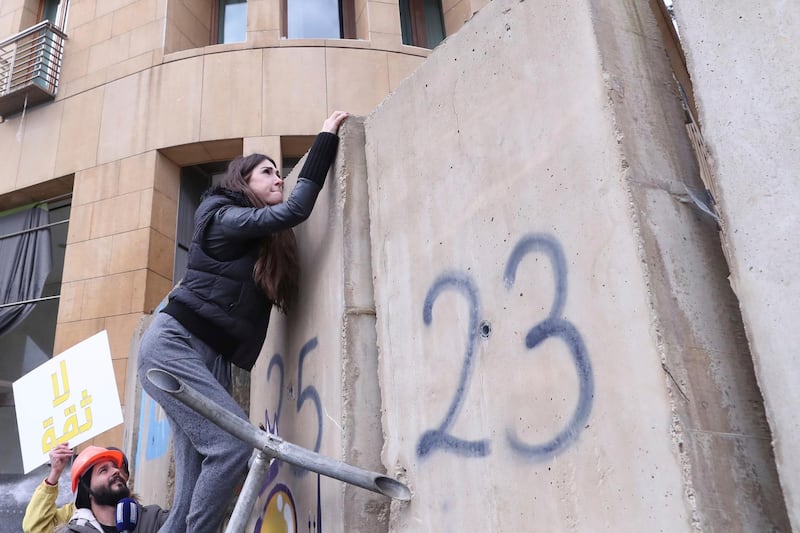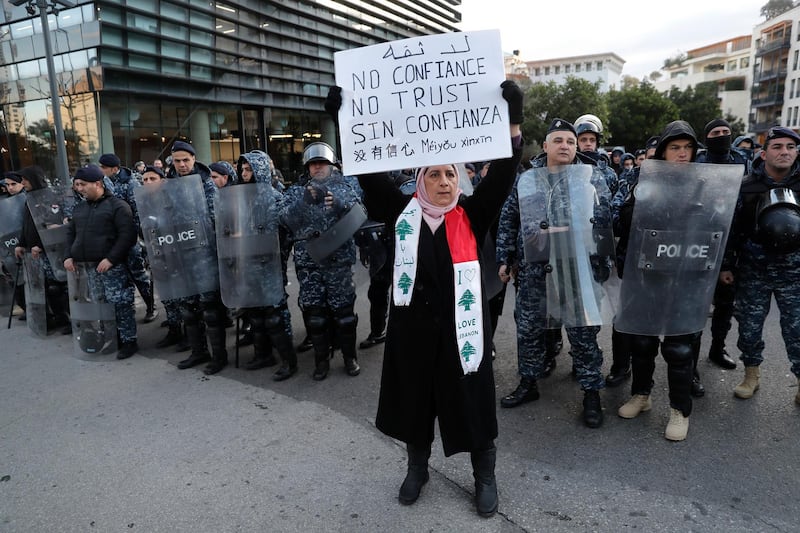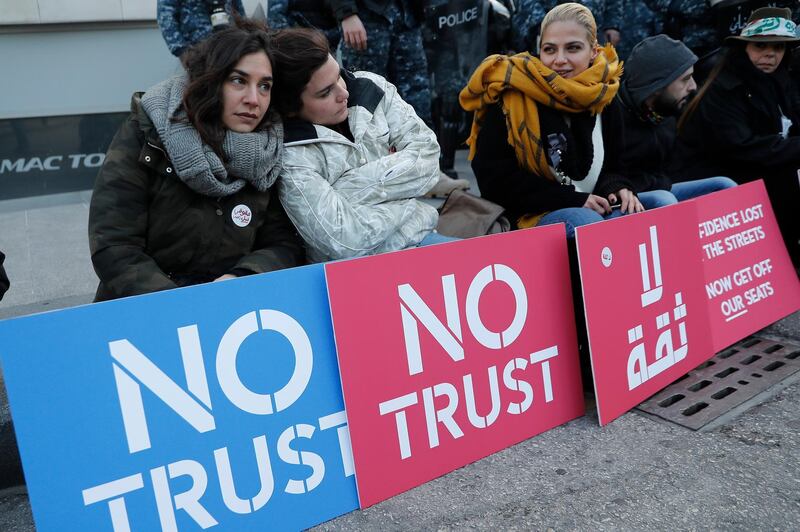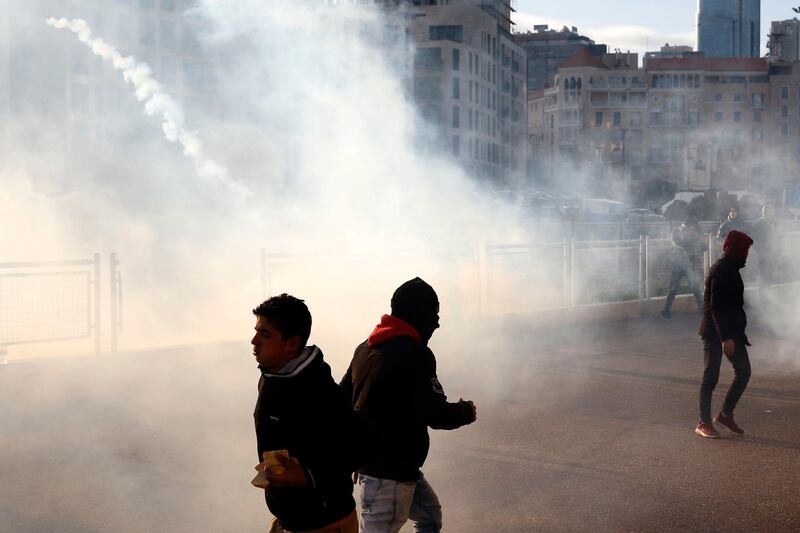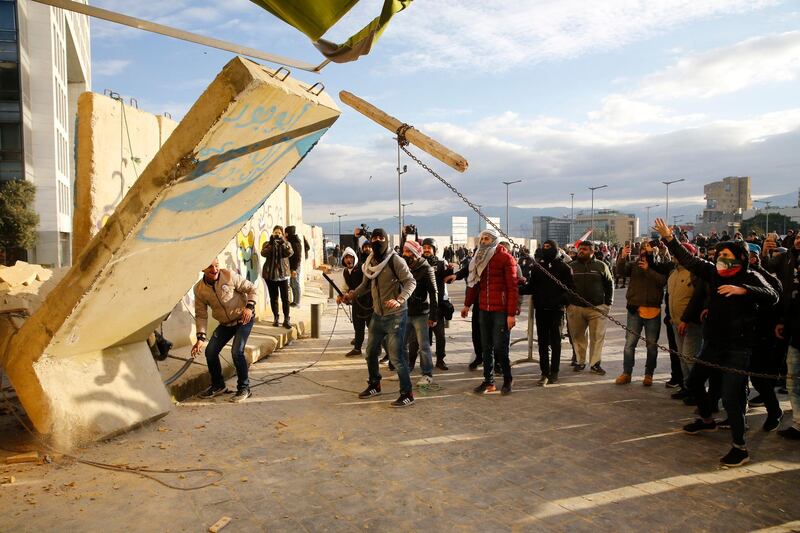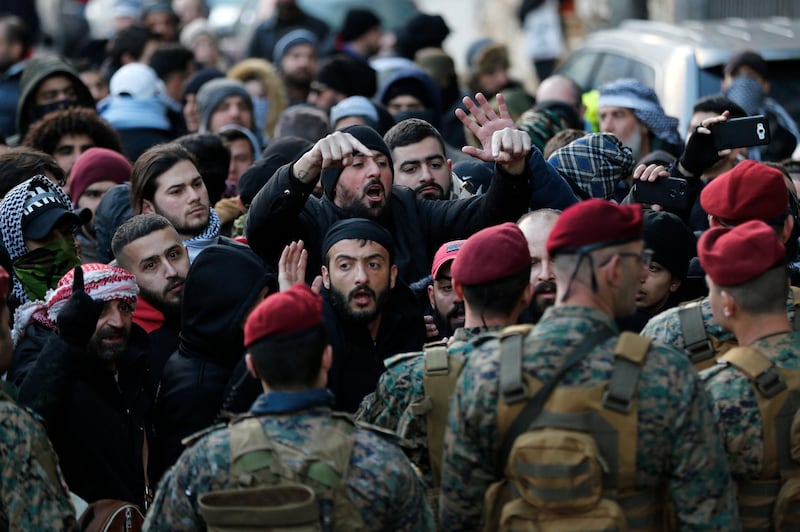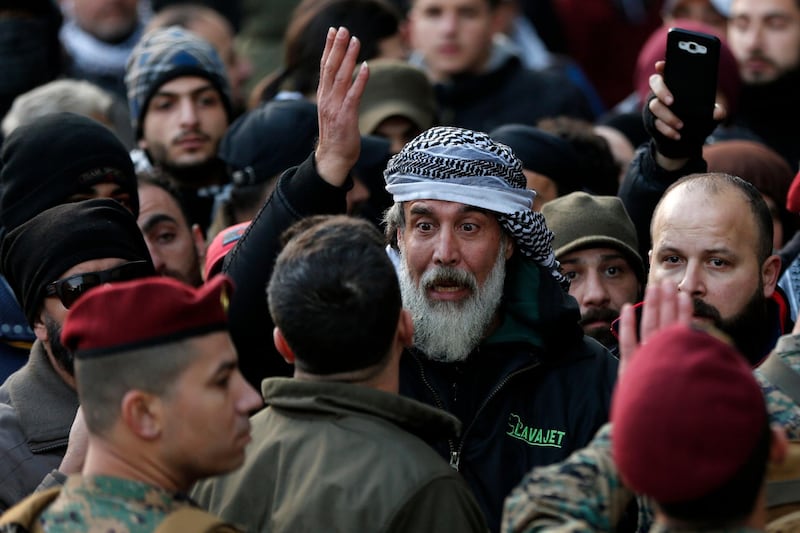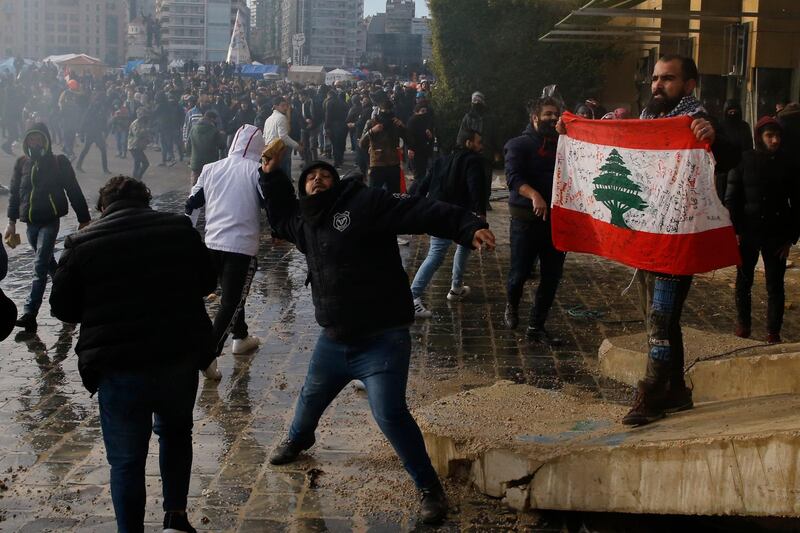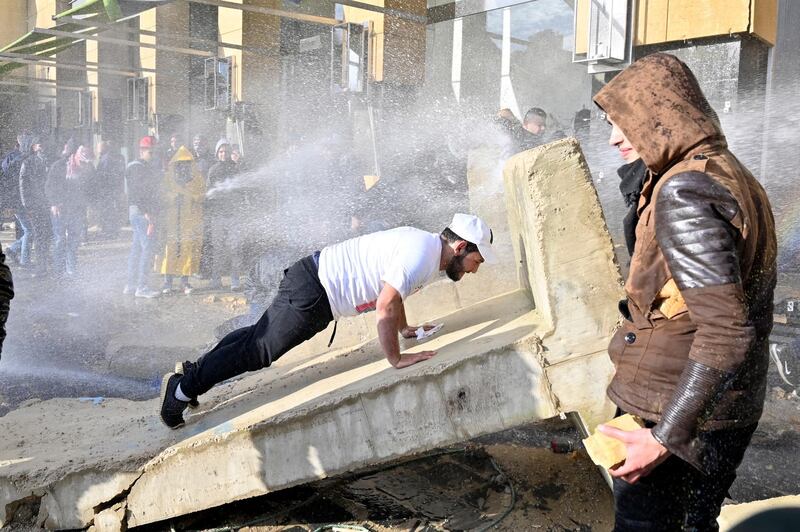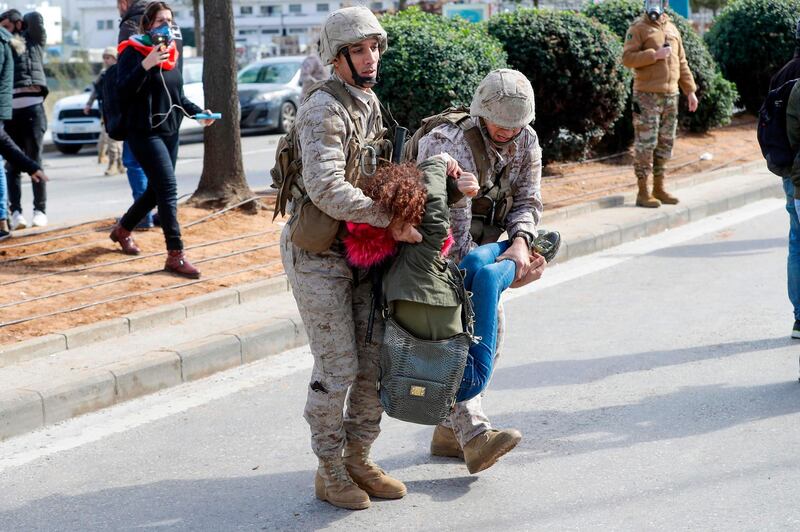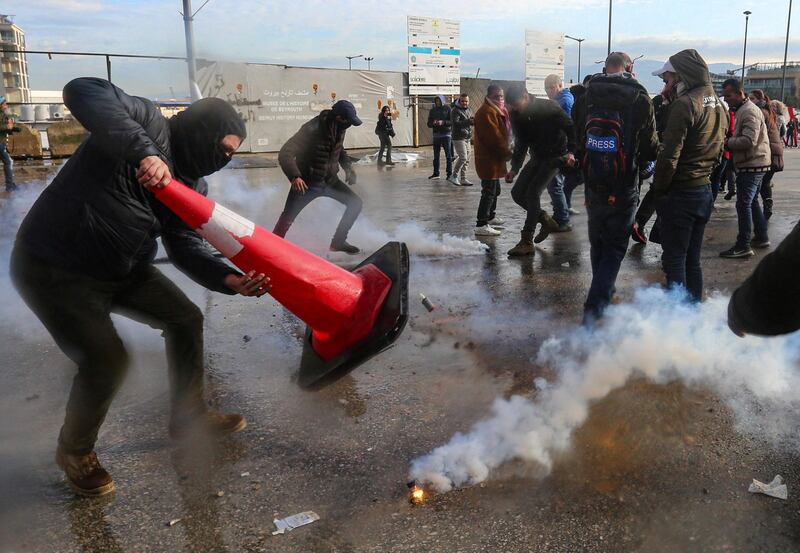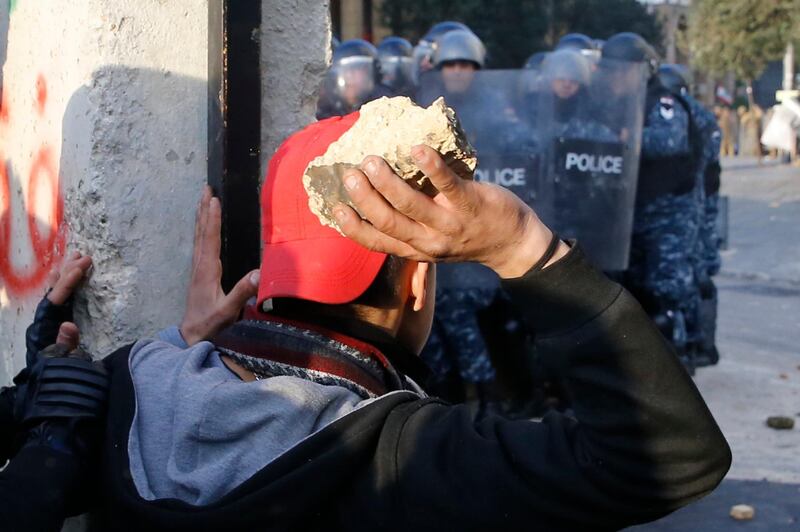Protesters gathered in north Lebanon on Monday evening, hours after the news that Ahmad Tawfiq had died weeks after being shot in Tripoli during a protest in November. Tawfiq’s death brings the direct death toll from the nationwide uprising that began on October 17 to two.
Demonstrators cut roads around the city on Monday, but the situation was calm on Tuesday despite calls for a “day of rage” on social media.
The young man in his twenties died on Monday afternoon, according to Nini Hospital in Tripoli, where he had undergone multiple operations since he was wounded in November. Protesters told The National that he was buried on Tuesday in his home town of Tal Hayat, in the region of Akkar.
This is the second death directly related to the protests, after Alaa Bou Fakhr, a 38-year old father of three, was killed by a member of the army intelligence at a road block on November 12. Four other people have died in accidents or in brawls related to the demonstrations since October 17.
In contrast with the outpouring of grief and solidarity that followed the death of Mr Bou Fakhr, no prominent Lebanese politician had commented on Tawfiq’s death on Tuesday afternoon.
The circumstances surrounding his injuries remain unclear.
His doctor, George Chelouhi, told The National that Tawfiq was hospitalised after a protest in late November outside the office of President Michel Aoun's Free Patriotic Movement in Tripoli.
According to media reports at the time, clashes erupted between the army and protesters who tried to storm the party office on November 27. At the time, the army arrested 16 people.
An activist from Akkar said that Tawfiq was injured by a bullet shot by the army, confirming local media reports. However, an army spokesperson denied the reports, saying they did not have knowledge of how Tawfiq was hurt.
“He was injured by shrapnel in his body,” said Tawfiq’s surgeon, Moustapha Allouche, who is also a member of the Future Movement, the party of former Prime Minister Saad Hariri. He refused to disclose further details about Tawfiq’s wounds, saying that he could only discuss these matters with the parents of the deceased.
Mr Allouche could not recall the exact day Tawfiq was injured but confirmed it was last November during protests. “He was a sweet person, from a sweet family,” he said.
The state-run National News Agency, which reported on Monday evening that Tawfiq was wounded on November 17, said that protesters gathered shortly after his death in the streets of Tripoli. People chanted that they will “continue their movement until the country is free from corruption.”
Lebanese protests have deeply divided political parties, with Mr Hariri stepping down shortly after they began on October 29, saying that he had “heard the voice of the people.”
However, Mr Aoun’s FPM has been less sympathetic to protesters. OTV, a television affiliated to the party, has accused them of being infiltrated by foreign countries.
Today, demonstrations have dwindled, with many Lebanese waiting to see how the new government of Prime Minister Hassan Diab will tackle the country’s worst financial crisis in decades – the initial spark for the protests.
Experts doubt that he will manage to garner much-needed international support. The new government was formed with the support from parties backed by Iran and Syria and boycotted by political parties close to the West.
On Tuesday, the speaker of Iran’s parliament, Ali Larijani, became the first foreign official to visit Lebanon since the new government was formed.
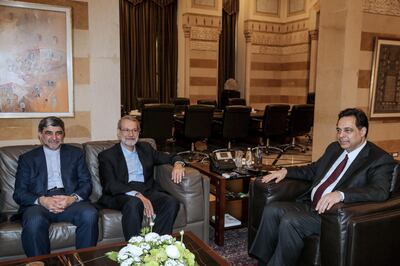
On the same day, a senior UK adviser to the British Ministry of Defence for Middle East Affairs reiterated Britain’s “continued support” for Lebanon.
Late January, US Secretary of State Mike Pompeo said that Lebanon would only receive international assistance if it was truly committed to undertake “tangible reforms”.
Close to $11 billion in soft loans was promised to Lebanon in April 2018 at a Paris conference, but Lebanon never pushed through with the promised reforms and the funds remain frozen.
